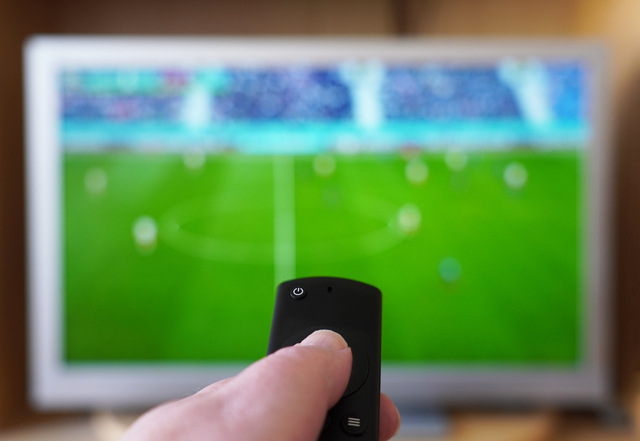Stop Buffering – Best IPTV & No More Interruptions | StaticIPTV
Introduction to IPTV without buffering The popularity of IPTV has been on the rise in recent years, as more and more people are choosing to stream their favorite TV shows and entertainment online. With the convenience and flexibility it offers, IPTV without buffering has become a preferred method of watching content for many individuals. However, not all IPTV providers are created equal, and it is important to choose a reliable service that offers stable and high-quality streaming. Why buffering is a common issue in video streaming? Buffering is a common issue that many people encounter when streaming videos online. It is the process of temporarily storing data in the memory of the device you are using to watch the video, in order to ensure smooth playback. However, if the data is not being received and processed by the device fast enough, it can result in buffering and interruptions in the video playback. There are several reasons why buffering can occur during video streaming: – Slow internet connection: If your internet connection is not fast enough to handle the streaming data, buffering can occur. This can be frustrating, especially if you are trying to watch a live event or a time-sensitive show. – Congestion on the network: If there are many users on the same network, or if the network itself is experiencing heavy traffic, it can result in buffering issues. This is common in public places like cafes or airports, where multiple users are trying to stream videos simultaneously. – Insufficient server capacity: If the server that is hosting the video you are trying to stream does not have enough capacity to handle all the requests, it can lead to buffering. This can happen if a popular live event is being streamed to a large number of viewers at the same time. The importance of finding a reliable IPTV provider When it comes to IPTV, finding a reliable provider is crucial to ensure a hassle-free viewing experience. Here are some reasons why it is important to choose a reliable IPTV provider: – Stable and high-quality streaming: A reliable IPTV without buffering will have servers that are capable of handling high traffic and delivering a stable streaming experience. This means that you will have fewer buffering issues and interruptions while watching your favorite shows and entertainment. – Wide device compatibility: A good IPTV provider should be compatible with a wide range of devices and applications. This means that you can use the service on your preferred devices, whether it is a smart TV, smartphone, tablet, or computer. – Affordable pricing: Reliable IPTV providers often offer competitive pricing plans that are affordable for users. This means that you can enjoy high-quality streaming without breaking the bank. – Customer support: A reliable IPTV provider will have a dedicated customer support team that is available to assist you in case of any issues or questions. This ensures that you have the necessary support to resolve any problems that may arise while using the service. In conclusion, choosing a reliable IPTV provider is important to ensure a hassle-free and enjoyable streaming experience. With the availability of services like StaticIPTV.co.uk, there is no reason to settle for unreliable service or high subscription costs. Take the time to research and choose a provider that offers stable and high-quality streaming, wide device compatibility, affordable pricing, and excellent customer support. Understanding the Impact of Buffering Buffering and its effect on video playback Buffering is a common issue faced by users when streaming videos, including IPTV without buffering. It occurs when the video playback is temporarily paused to allow for the loading of data packets. These packets ensure a smooth streaming experience even in the presence of momentary internet glitches. However, when buffering occurs frequently or for extended periods, it can be frustrating for viewers and disrupt the overall viewing experience. The main goal of buffering is to ensure uninterrupted streaming by allowing the video to load ahead of time. When the video is paused to buffer, it creates a temporary delay in playback, during which the data packets are loaded into the playback buffer. Once enough data has been loaded, the video resumes playing without any interruption. Common interruptions caused by buffering Buffering issues can be caused by various factors, including internet connection speed, device performance, and server congestion. Here are some common interruptions that can occur due to buffering: 1. Buffering pauses: Buffering pauses can occur when there is a delay in loading the required data packets, leading to a temporary pause in video playback. This can be frustrating for viewers, especially if it happens frequently or for extended periods. 2. Video stuttering: Buffering issues can also result in video stuttering, where the video playback becomes choppy and inconsistent. This can happen when there are interruptions in the buffering process, causing the video to play in an uneven manner. 3. Video quality degradation: In some cases, buffering issues can lead to a degradation in video quality. This can manifest as pixelation, blurriness, or a decrease in overall resolution. When the video playback is interrupted due to buffering, the data packets may not be loaded in time to maintain the original video quality. 4. Buffering loop: In rare cases, buffering issues can lead to a looping effect, where the video gets stuck in a continuous buffering cycle. This can be caused by a variety of factors, including network congestion, server overload, or device performance limitations. In conclusion, buffering is a necessary process in IPTV without buffering that ensures uninterrupted playback. However, frequent or prolonged buffering interruptions can significantly impact the viewer’s experience. Understanding the common interruptions caused by buffering can help troubleshoot and address these issues to ensure a smooth and enjoyable streaming experience. StaticIPTV: The Best IPTV UK Provider StaticIPTV is a leading IPTV provider in the UK, offering exceptional streaming capabilities and an extensive channel selection. Here’s why StaticIPTV stands out as the best IPTV provider in the UK: Why StaticIPTV stands out as the best
Stop Buffering – Best IPTV & No More Interruptions | StaticIPTV Read More »



